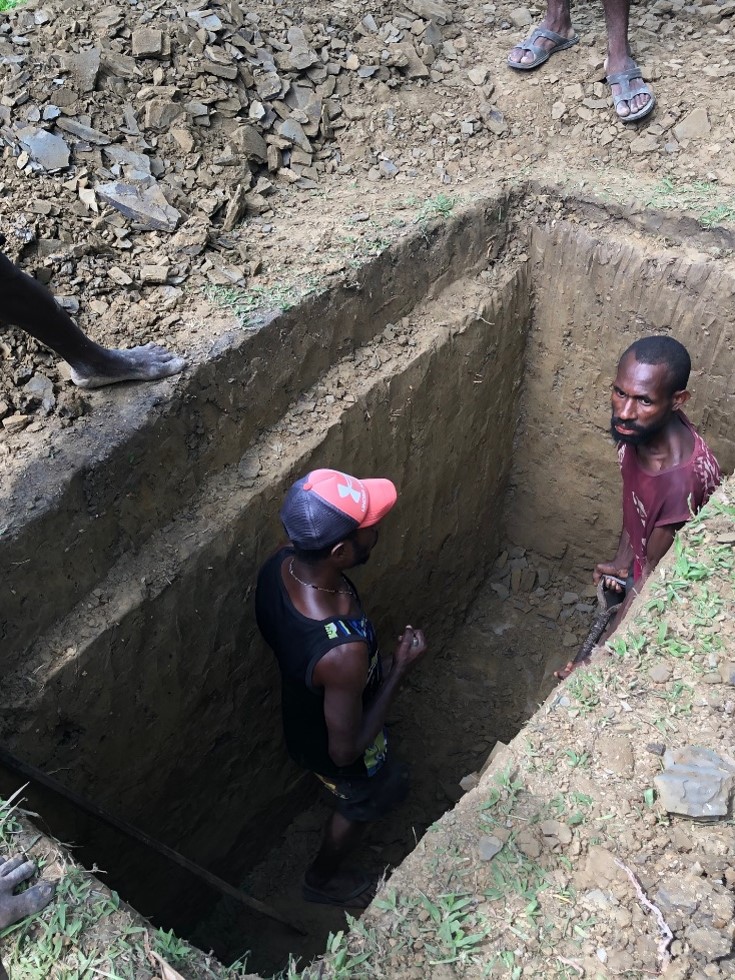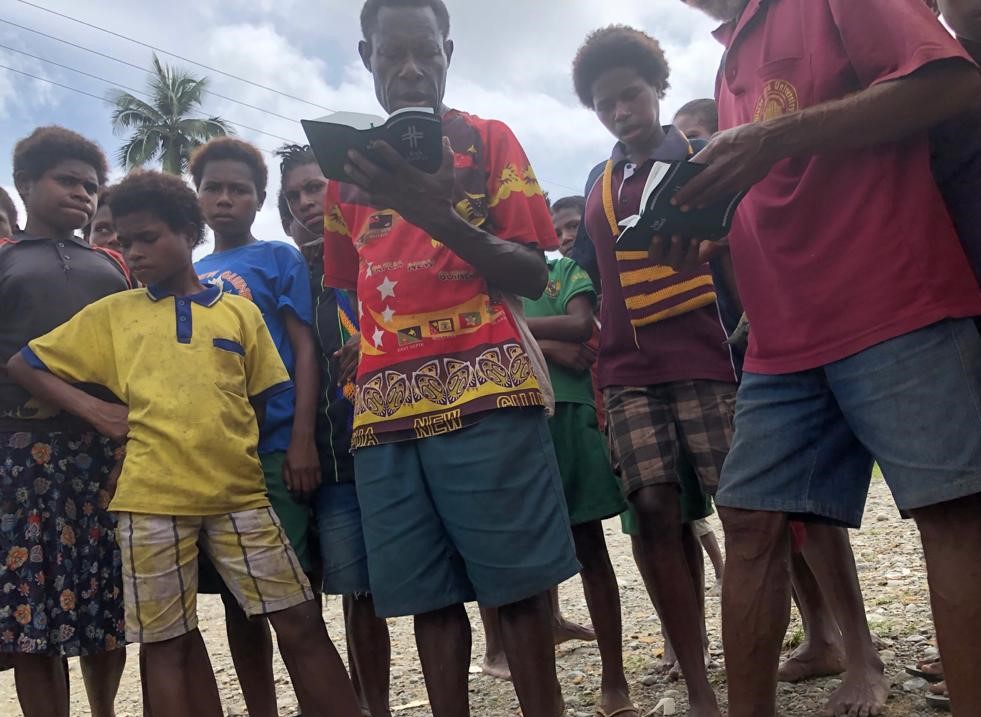We encountered death a few times on our most recent trip out to the bush of Papua New Guinea.

While we were in Sandaun Province, right in the middle of our Culture Meets Scripture (CMS) workshop, an elderly man died. He had been ill for some time and had been unable to feed himself for the past three years. All classes for the day were cancelled to allow the community to grieve and perform the burial, so I and another gal on the team decided to go see the family and offer our condolences. We witnessed them building the coffin and digging the grave, we shook hands with the family, and we sat next to the covered, frighteningly small body as his wife wailed over him.
But really, that’s not the death that sticks out in my mind.
The death of Darlene’s* daughter does.
Darlene was a woman we met on our first day in the village. She had hiked up a mountain to give us a warm, Papua New Guinean welcome. As I storied with her that afternoon, she told me that she had five children, but that one of her kids, a girl in 7th grade, had died. What I didn’t realize until after she had left is that her little girl had only just died a week and a half ago.
What? How was she upright? How was she smiling and laughing? For the rest of the week during the course my eyes often drifted towards Darlene. I just didn’t understand, and I wanted to. Every time our eyes met she smiled at me, eyes shining.
I’d like to say that it was Darlene’s great faith in the death and resurrection of Jesus that abated her sorrow, but I don’t think that was it. I do think that when you encounter death so frequently your reaction to it starts to change. Your capacity to feel grief, to go into that deep, dark pit, gets less and less – because each time you descend into the pit, the threat of never getting out looms larger and larger. So you just lay down and accept it for what it is, particularly when you can’t afford for life to stop; your other four children still need to eat.

But I am reminded of our hope as followers of Christ. Some have forgotten that hope is just as active as faith and love are; we must hope with purpose and trust. Sometimes, to continue to hope is a sacrifice. But we have to hope! To not hope and to not wrestle against our enemy, death, denies that we have been made in the image of God. And what is our hope? It’s not just that He will wipe away every tear, because He will. Our hope is also that God will dwell with us again, death will be finished, and that all things will be made new.
“And I heard a loud voice from the throne saying: “Behold, the dwelling place of God is with man, and He will dwell with them. They will be His people, and God Himself will be with them as their God. He will wipe every tear from their eyes, and there will be no more death or sorrow or crying or pain. All these things are gone forever.” And the One seated on the throne said, “Behold, I make all things new.” Revelation 21:3-5a NLT
We look forward into that seemingly far-off future with great anticipation, but sometimes it’s easy to despair that anything will ever change now. The world, so full of its brokenness and ugliness and vileness often makes one weary and lose heart. But that’s where the family of God comes in. We’re supposed to rally in times of trouble, encourage, remind each other of God’s promises and miracles, and provide space for a sister or brother to share their honest feelings. We are to remind each other that God still heals, redeems, saves, and intervenes. Our God is not far off and He is not sleeping; when He hears our cries He can’t help but respond with compassion. Despair screams, “lose hope!” God says, “I’m right here, child, forever and always.”
I never got a chance to sit alone with Darlene again after that first encounter. If the opportunity comes again, I’ll ask her to tell me her little girl’s name, and I’ll ask her to share a favourite memory of her, something that always makes Darlene smile. I’ll honour the memory of that little girl I never got to meet, and I’ll remind Darlene of the incredible promise of Revelation 21 that we all look to with such great longing. I think I’ll give her a hug, too.
*Darlene is a pseudonym. Darlene means darling, loved one.
Story and photos by Nancy Kinsel
